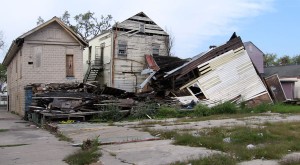
February 10, 2017
FHA UFMIP Refunds: A Reader Question
Is the FHA Up Front Mortgage Insurance Premium or UFMIP refundable? A reader got in touch with us in the comments section this week to ask us a question in that area: “Is there any return of the UFMIP when refinancing out of an FHA loan to conventional? If so, what is the proration amount or percentage of fees refunded? over 6 months, 12 months, 18 months, 24 months?” This insurance premium on FHA mortgages is refundable under a specific set of refinance loan circumstances, but not for all loans. FHA loan rules in HUD 4000.1 address the issue directly; on page 156 we learn the following: “The UFMIP is not refundable, except in connection with the refinancing to a new FHA-insured Mortgage.” HUD 4000.1 states that Up Front Mortgage | more...









